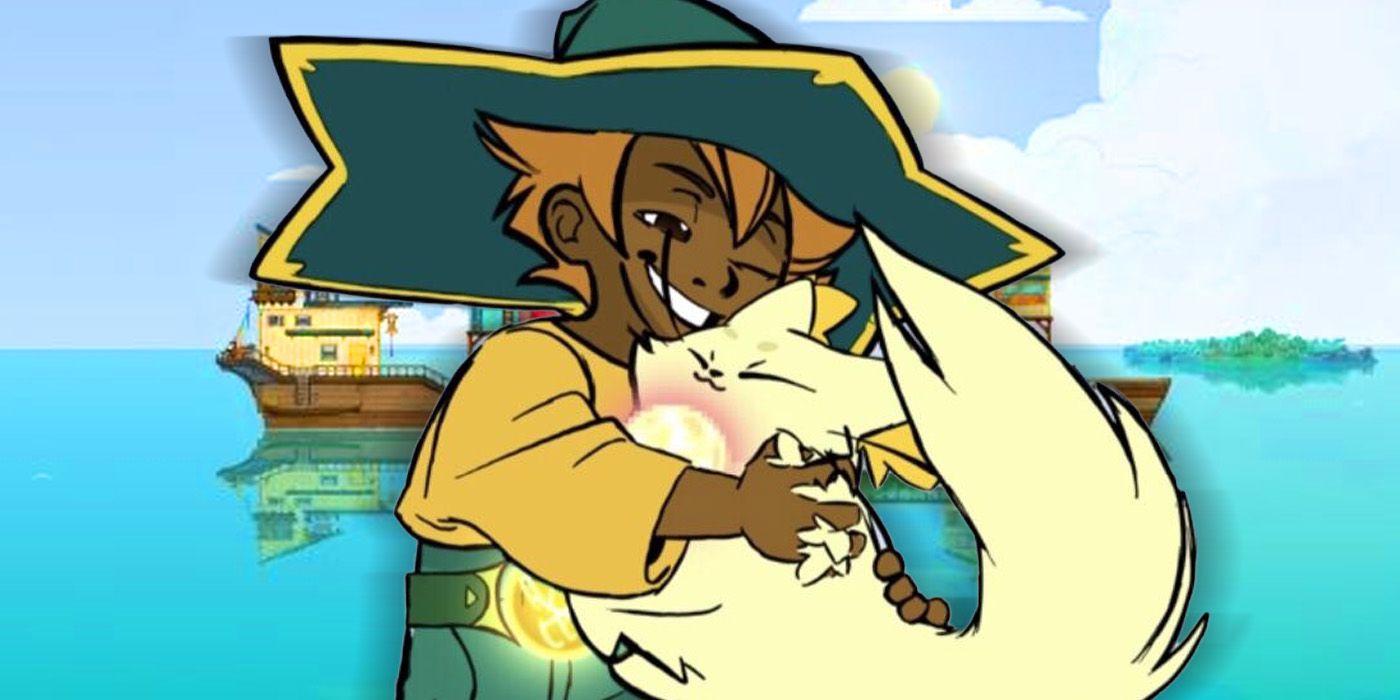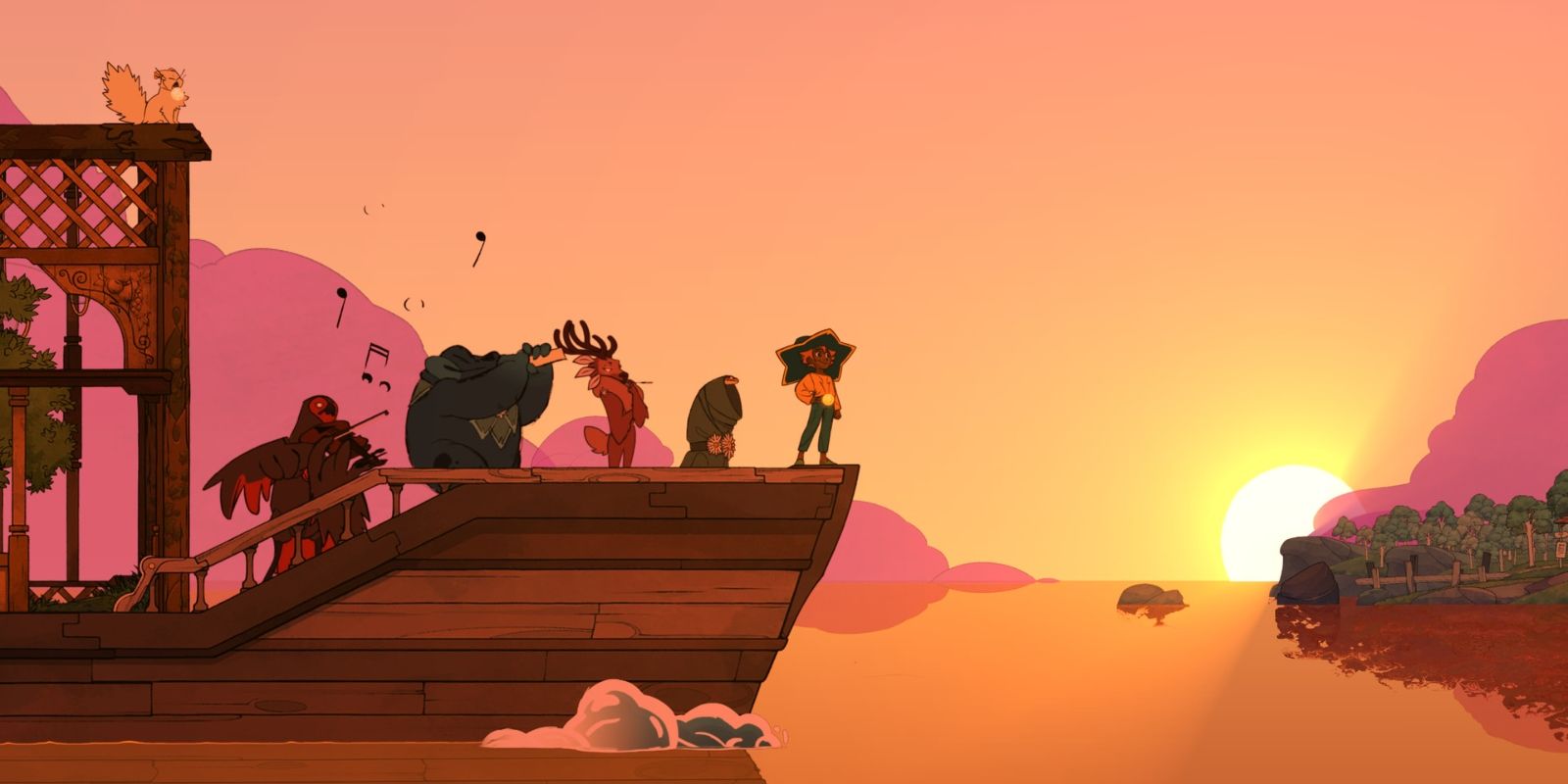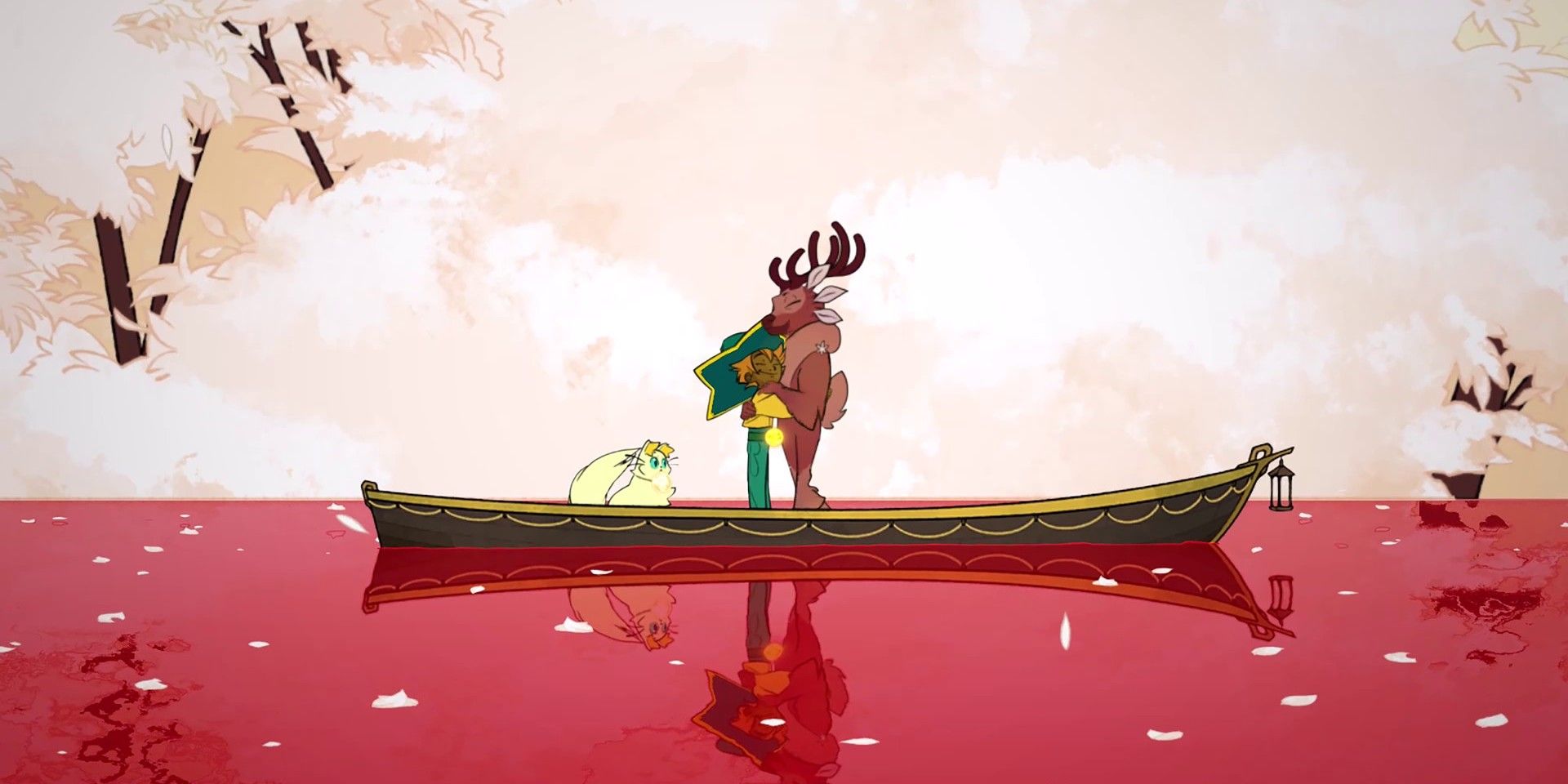At first glance, Spiritfarer looks like an adorable indie game with gorgeous hand-drawn art and creative character designs. And while it is all of these things, the game also deals with a multitude of heavy topics that one may not expect from such a colorful and gentle looking game.
From the start, developer Thunder Lotus Games has called Spiritfarer "a cozy management game about dying," a phrase that juxtaposes a nice feeling like "cozy" with something that is anything but that. Death may not be a topic that most people can find any comfort in, but it's the way Spiritfarer handles its dark subject matter that makes it a comforting, sometimes heart-warming and, ultimately, cathartic experience.
In Spiritfarer, you play as Stella, who (along with her pettable cat Daffodil) has been tasked with bringing spirits to the Everdoor. She takes the place of Charon, the ferryman of Hades from Greek mythology, who explains the job to his successor before going through the Everdoor himself. Once you have your boat, it's time to find the spirits of the deceased and care for them until they are finally ready to go to the afterlife. For many, this involves completing some unfinished business, getting closure and facing their fears. As Stella helps her passengers get ready to face the inevitable, she'll befriend them, giving them food and hugs when necessary.
To provide what her passengers need, Stella will also need to build her boat. Similar to games like Animal Crossing and Stardew Valley, building, crafting and gifting play a major role, as does deciding where different structures are placed and managing the space you have. In addition to simple minigames for tasks like fishing, farming, sawing and smelting (which, for better or worse, the game forces you to figure out for yourself), each spirit also comes with their own more involved resource-gathering event that'll get you important items you'll have troubling finding anywhere else.
On top of dealing with death, dying and the afterlife, Spiritfarer also touches on other difficult topics through the characters who board Stella's boat. Each has their own story with challenges to overcome or memories that make it difficult to move on. One of the first characters you meet often alludes to a difficult upbringing, and you'll have to visit her parent's house before she's ready to go. Another character clearly has dementia and needs more and more help as the game goes on. Not every character you meet has a dark background or a tragic storyline, but specifics ones will resonate differently with players based on their own experiences. The developers have said that some characters are based on people from their own lives who have passed away, adding a personal dimension to the game.
That's where the most difficult part of the game comes in: saying goodbye. While Spiritfarer does give players plenty of freedom to ignore the task at hand and explore as they please, eventually, it will be time to bring each spirit to the Everdoor. These one-on-one moments between the dying and Stella are easily the most emotional in the game, as the spirit reflects on their life, their regrets and their loved ones before accepting their fate, giving Stella one last hug and finally crossing over to the other side.
But while this is incredibly bitter, there is also some sweetness to it. While the spirit of the passenger you befriended may be gone, there's so much they leave behind. In addition to literally leaving items that are necessary to keep going in the game, you'll still be able to play through the item collection events associated with characters that have already moved on. In that way, the game makes clear that Stella has learned from each of the souls she has transported and will continue to carry their lessons and legacies with her.
Spiritfarer doesn't seek to answer the difficult unknowns about death and what comes after. While we see the Everdoor, we don't see what's behind it. Of course, this is far from the only game to deal with death and grief, but rather than playing as a character who cuts through enemies, struggles to cope with a loss or both, Spiritfarer never basks in the dismal. Instead, it's as calming and comforting as its art style, ending each character's story with the difficult but satisfying goodbye that we don't always get in the real world.



